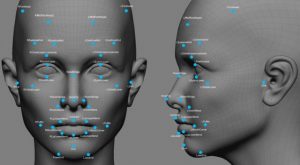 According to a number of recently released reports, more than half of all Americans now have their face on file in at least one law enforcement database. This same report goes on to say that the FBI is going everything in its power to keep the fact this database exists very quiet.
According to a number of recently released reports, more than half of all Americans now have their face on file in at least one law enforcement database. This same report goes on to say that the FBI is going everything in its power to keep the fact this database exists very quiet.
Today, according to the Georgetown Law Center, in their report titled “The Perpetual Lineup” on privacy and technology, there are now more than 52 police departments across the country are now maintaining their own face recognition databases. Of these, the L.A.P.D. is one of several who are now known to be able to identify people on live video surveillance.
Mug Shots
Chances are pretty good that if anyone has committed a crime, their face is going to be in at least one database or another. Many police departments also have fingerprints and perhaps even a DNA sample. While this might seem normal for anyone who is arrested for a crime, it would be considered a serious breach of privacy for anyone who has never committed a crime. Think of it this, when a person who goes to the DMV for their driver’s license photo could suddenly find themselves the victim of a warrantless search and more importantly be completely unaware of it.
How Does This Apply to Law Enforcement Officers?
As is stands, law enforcement officers are not the only ones with access to facial recognition software and this opens them up to being scanned and recognized in a crowd. Although this might not be an issue for officers in their own neighborhoods, imagine if an officer is sent to another area to help quell a riot or protest.
It is quite possible for someone to be scanning the crowds using a cell phone or portable camera and then upload the images to a computer where the operator can access such a database. Now you have someone who can pick out the officers and then target them for harassment or worse in the future.
Not Regulated
One of the biggest problems with facial recognition software is that it nor the use of it is not regulated at federal or state level. You would think that the police databases would be kept secure where the public would be unable to access them. However, time and again we hear about database breaches and how much information is stolen.
In most cases, the databases probably contain images of many police officers, along with their personal information. This allows criminals to create their own databases which they can use to identify not only uniform officers, but plainclothes detectives, and those who are working undercover. What this means is that while no one is likely to restrict access to the software, stronger safeguards need to be put in place to protect the databases that already exist and put in place new laws regarding them and access to them.
